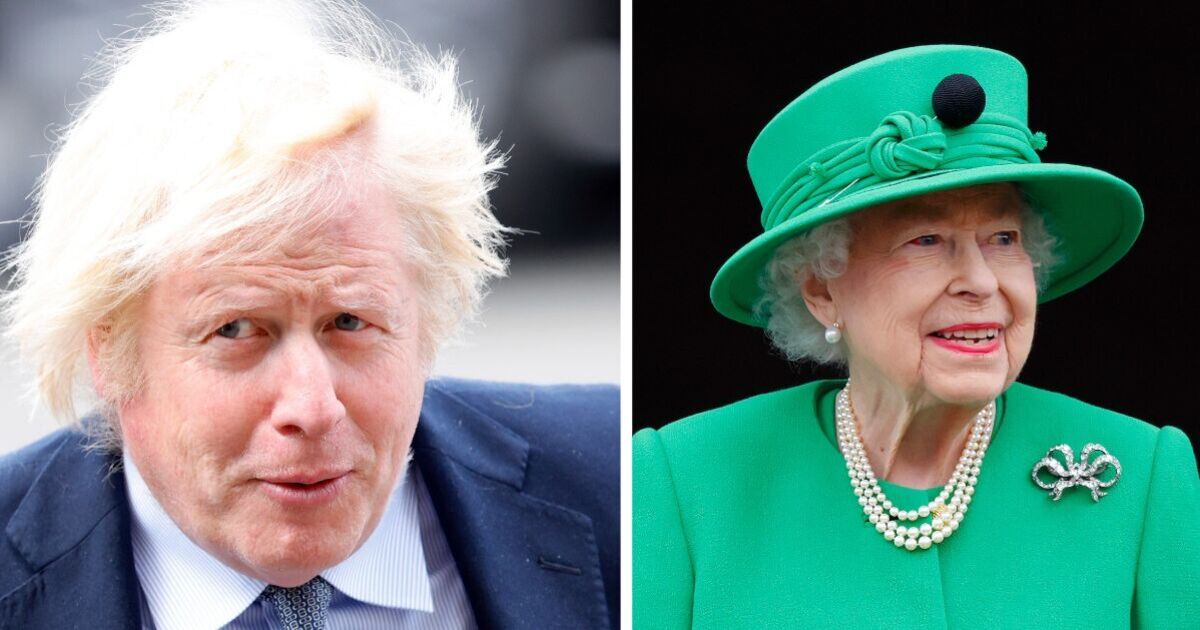Boris Johnson asked the late Queen Elizabeth II to suspend Parliament in the summer of 2019, as part of a political strategy during the Brexit crisis, resulting in a unique response from the late Queen, according to a new book by royal author Valentine Low. Prorogation is the term given to the period between the end of one session of parliament and the state opening that begins the next.
The royal author writes Boris’ move was set to be “highly controversial” as they wanted to “prorogue parliament for five weeks”, to “stop the Remainers passing legislation blocking a no-deal Brexit“. The Palace, according to Sir Anthony Seldon’s account of Boris’s time in power, was very unhappy about it, because it came during Queen Elizabeth II’s summer break at Balmoral in Scotland.
As reported in the Times, he writes: “They hadn’t been properly prepared and warned when on holiday in August, and the Palace felt they would have been in a stronger position had they been contacted earlier and had a chance to think it through.”
The act of opening parliament is always formally carried out by the sovereign on the advice of the privy council, and takes effect when a royal proclamation is read to both houses of parliament. To discuss Boris’s plans, Jacob Rees-Mogg had travelled to Balmoral to see Queen Elizabeth II.
According to a royal source, the late Queen “took it all in her stride”. Valentine Low further writes: “There was, however, deep uneasiness within the Palace that she had been put in such an awkward situation. But could she have done anything about it? Probably not.
“Some senior Whitehall sources wonder why the Palace did not opt for some kind of delaying tactic when Rees-Mogg et al arrived at Balmoral, even if only to say, ‘I’m afraid the Queen is indisposed for a few hours, please have a cup of tea’, while they found out what the hell was going on. But even if they had, all the cabinet secretary could have said was that the attorney-general thought it was lawful.”
Low writes that the historian Peter Hennessy believes the constitution relies on a shared understanding of good behaviour in public and political life, meaning “you do nothing to embarrass the monarch”.
The prorogation, he said, “was bound to embarrass the Queen because it was going to split the parties and the nation and everybody. The Palace was deeply upset by this.”
On September 24, 2019, the Supreme Court ruled unanimously that the advice to prorogue parliament was unlawful. As reported in the Times, the former prime minister Sir John Major called on Johnson to make an “unreserved apology”, saying: “No prime minister must ever treat the monarch or parliament in this way again.”
It is reported that the late Queen’s reaction was said to be more “sanguine”. She reportedly regarded Boris as a roguish and comic figure, and a month after the judgment, she said: “I think he was perhaps better suited to the stage.”
‘Power and the Palace: the Inside Story of the Monarchy and 10 Downing Street’ by Valentine Low will be published on September 11.
